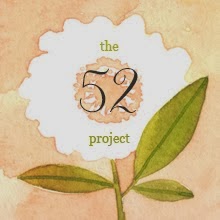Mother's Day has come and gone here in the UK, in March in fact, and it went with very little notice in my family. My husband is not a gift-giver, and I am much more interested in the liturgical holidays. Oh, I'll take flowers if they're offered, without a doubt, but that can be for any reason or no reason at all. And, as my family can attest, I've a healthy enough sense of self-indulgence.
For some, Mother's Day can be one of painful mourning; for those who've lost mothers or children, or have no mothers or children. For others, it can be an excuse to act insufferable and entitled. Masha, Jenna, and I have been talking about how our culture approaches Mother's Day and what the repercussions are thereof.
Masha loathes Mother's Day, which, I admit, is stronger than my feeling for it. But I love the reasoning behind her passionate dislike. She writes
I don't like Mother's Day because its fake. It's a commercially created and socially enforced lie to women that her value comes primarily through her ability to birth; that her vocation as a mother is 'the hardest job in the world;' and that because of all this she is owed the veneration, affection, and affirmation of not only her family, but society at large.
Now, I have a healthy respect for the stay-at-home mom because, as one who has worked and raised a child, in my experience it was in many ways easier to leave my son somewhere where he was safe and well-cared for and go be among grown-ups, earning my own money, and working according to a fixed, predictable system. I also appreciate that it's no small accomplishment to balance motherhood and career. But to say that to bear or raise a child is the defining aspect of womanhood is inaccurate, and possibly very damaging. It is also a fallacy to believe because a woman can reproduce, she is somehow a saint that is owed our veneration. We know all too well in this fallen world that having a child doesn't make you a parent.
I appreciate mothers and motherhood. I see how it lifts and transcends, forms and challenges. It can make someone a better, more patient person. It can teach one the antithetical virtue of our society, that of self-sacrifice, and for that it is extremely valuable. But it is not the only thing that can transform and beatify and direct toward holiness. And it's not the most important thing.
Rather than motherhood, I wonder if we should not celebrate femininity as a whole. And I do not think that femininity is independent of motherhood. I am grateful to know women who are more motherly than some women who have children. This type of woman does mother--whether by tending a garden, writing poetry, mentoring a younger person, or gathering spiritual children in her womb of prayer. All these things are mothering--fostering creation, being open to the fecund spirit--or rather, Spirit, as Our Lady was at the Annunciation. Being open to God's will in their lives, being docile in a way that is shockingly empowering, taking the hand of God and helping to shape creation in a way that means it will never again be the same, changing it for the better. They are co-creators with the Almighty.
Masha says (emphasis mine):
I want a celebration of motherhood, but one that celebrates motherhood in it's place among womanhood's other roles and blessings. I'd like to see Mother's Day drift and spread out into something almost pagan, something Marian, something holistic . . . we are not a Catholic culture, and I don't expect to change that, but within the Church, why can't we honor the many faces of the Theotokos: virgin, mother, consort/spouse, lamenting one, and wise old woman of Ephesus - Queen of Apostles . . . why can't we take on May Day again on the first, or the feast of her Queenship on the last of May . . . and use the day to honor the women in our lives who bear God to us - however they do so.
There's something very me-ish about the modern Mother's Day, in that way in which most secular holidays are. The Church, as usual, has the antidote. Her holy days are outward-facing, pointing us to ponder on the saints and the mysteries. But like proper Christian paradox, in the losing we find ourselves again. Our roles and missions are drawn up into the celebrations and given back again as benedictions.
------------
For further reading:
Why I Hate Mother's Day by Anne Lamott
There's More than One Way to Be a Mom at A Knotted Life
Tuesdays with Mary: Ever-Virgin




















































